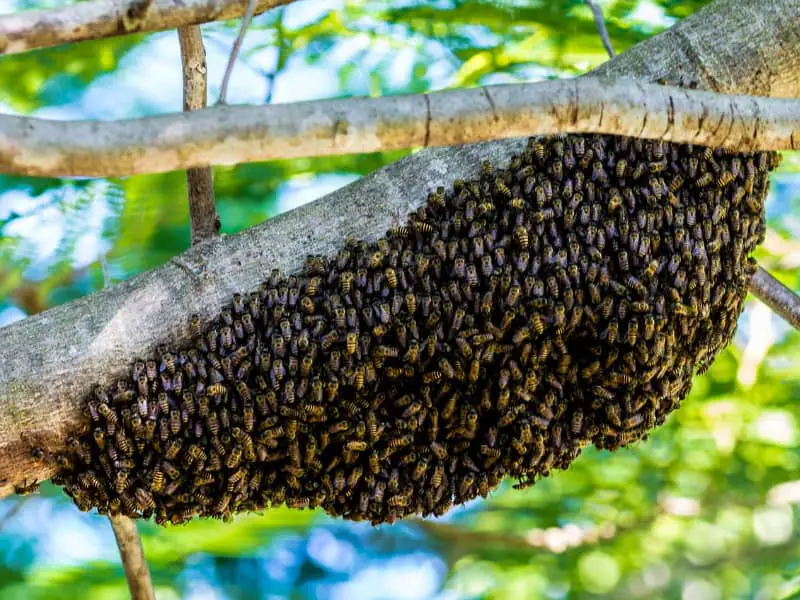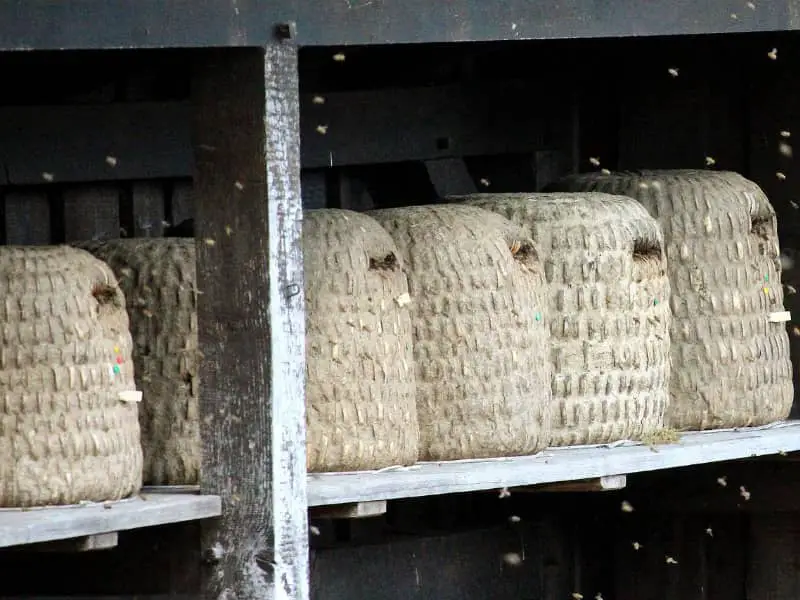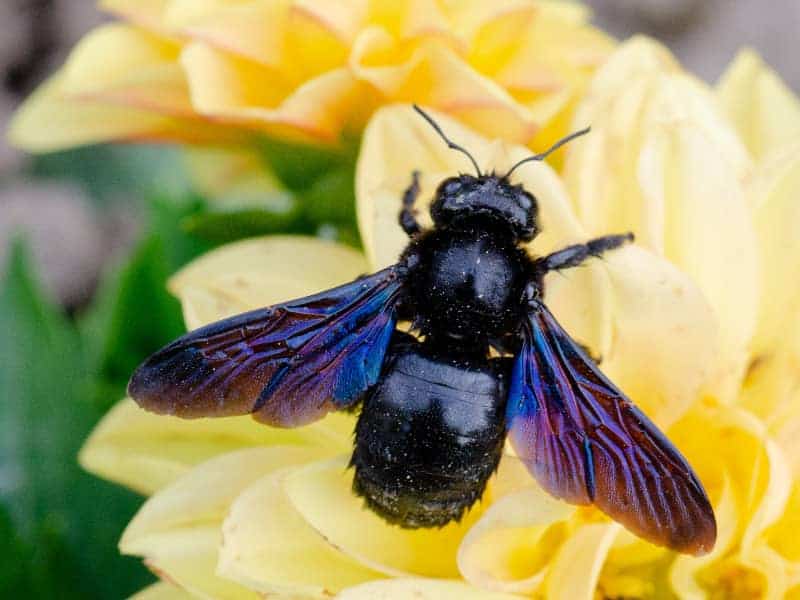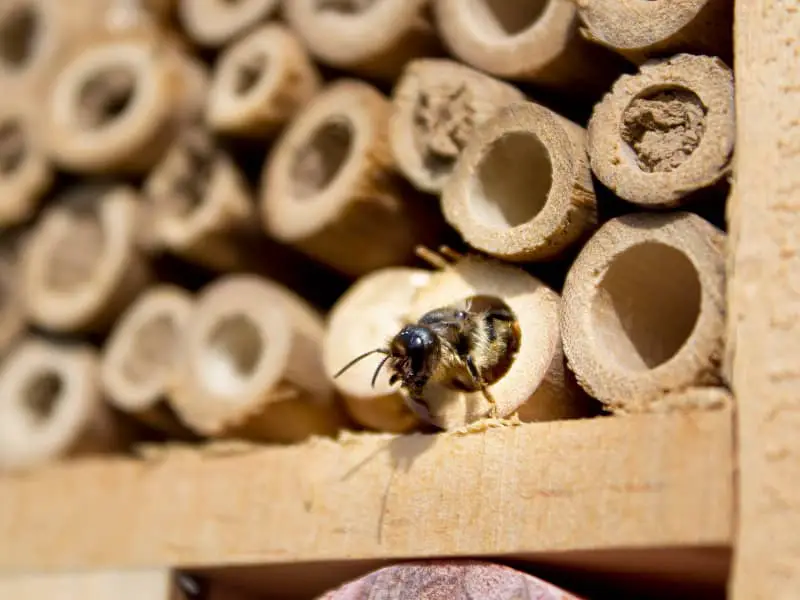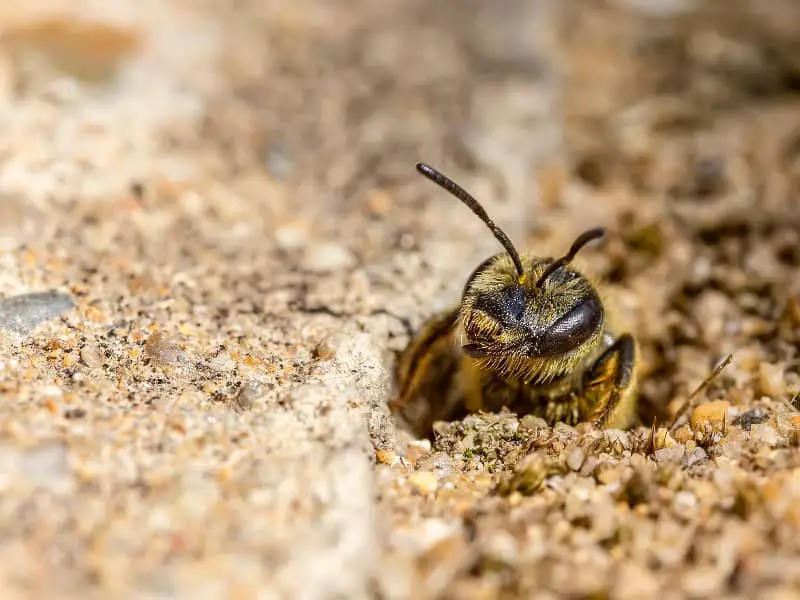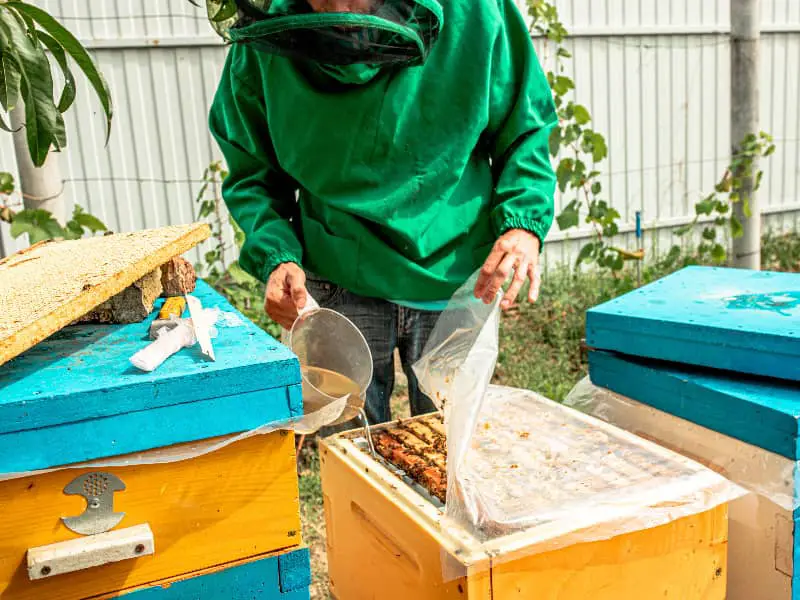
Feed bees
The world of bees is fascinating. As key players in our ecosystem, they contribute significantly to the pollination of plants and thus to the production of food for us humans. Sometimes, however, these industrious insects need our help, especially when food sources are scarce. At such times, it is not only a good idea, but often even necessary, to feed bees. But what is the right way to do it? In this blog post, we take a detailed look at the topic of feeding bees.
- Feed bees
- Why feed bees?
- Types bee forage
- The correct feeding technique
- Feeding frequency
- Possible dangers when feeding bees
- Homemade bee feed
- Optimal times for feeding bees
- Feeding bees during the winter
- Bee feed and environmental compatibility
- Avoid beginner mistakes when feeding bees
- Advanced feeding techniques
- Bee diseases and feeding
- Feeding bees in the city
- Feeding bees, benefits for your garden
- The ethics of bee feeding
- Feeding wild bees
- Myths around feeding bees
- Cooperation with local beekeepers
- Conclusion about feeding bees
Why feed bees?
Feeding bees is not only an act of charity. It has practical and ecological reasons.
Sign of weakness in the hive
Sometimes a hive shows signs of weakness or malnutrition. This can be caused by disease, parasites, or simply a lack of flowering plants in the area. If you notice that the bees are not as active or the hive is less populated, this could be a sign of a need for food.
Support in food shortage
In certain seasons, mainly late summer and early fall, natural food sources for bees can become scarce. Feeding at such times can mean the difference between life and death for a hive.
Types bee forage
There are several types of feed that are suitable for bees. Choosing the right feed is crucial.
Sugar water as the main food
Sugar water is the most commonly used food for bees. It is easy to prepare and is a direct source of energy for the bees. The usual mixture is one part sugar and two parts water. However, the sugar water should not be too sweet so as not to harm the bees.
Pollen substitutes
While sugar water gives bees energy, they also need protein, which they normally get from pollen. In times when natural pollen sources are scarce, pollen substitutes can be an alternative.
The correct feeding technique
It is not enough to simply pour sugar water into the hive. The way bees are fed is crucial to their health.
Top feeder: practical and safe
A top feeder is placed directly above the bee frame and allows the bees to feed from above. This prevents bees from drowning and makes it easier for them to reach the food.
Input feeder: Direct access
An entrance feeder is placed at the entrance of the hive. While it is easily accessible to the bees, it can sometimes encourage predation by other bees or insects.
Feeding frequency
The frequency with which you feed bees depends on various factors, such as the season and the health of the hive.
Observe signs of hunger
It is important to watch for signs of hunger in the hive. If the bees consume the food quickly or behave restlessly, it could be a sign that they need more food.
Feeding according to season
In spring and summer, when flowers are in bloom, bees may require less supplemental feeding. In the fall and early winter, however, regular feeding may be necessary to keep the hive alive.
Possible dangers when feeding bees
While feeding bees is usually a good idea, there are also some dangers that should be considered.
Avoid overfeeding
It is possible to overfeed bees. If they get too much sugar water, they can develop diarrhea, which can be harmful for the whole hive.
Prevent robbery
When a hive shows weakness or when food is too accessible, predation by other bees or insects can occur. This can be stressful for the bees and endanger the hive.
Homemade bee feed
You don't always have to use store-bought bee food. There are also some recipes for homemade bee food that are simple and effective.
Simple sugar water recipe
A simple recipe for sugar water involves mixing one part sugar with two parts water. The water should be warm to dissolve the sugar, but not hot.
Pollen pate for proteins
For a high-protein pollen patty, you can mix ground pollen, sugar water and soy flour. This provides the bees with a nutritious and protein-rich food alternative.
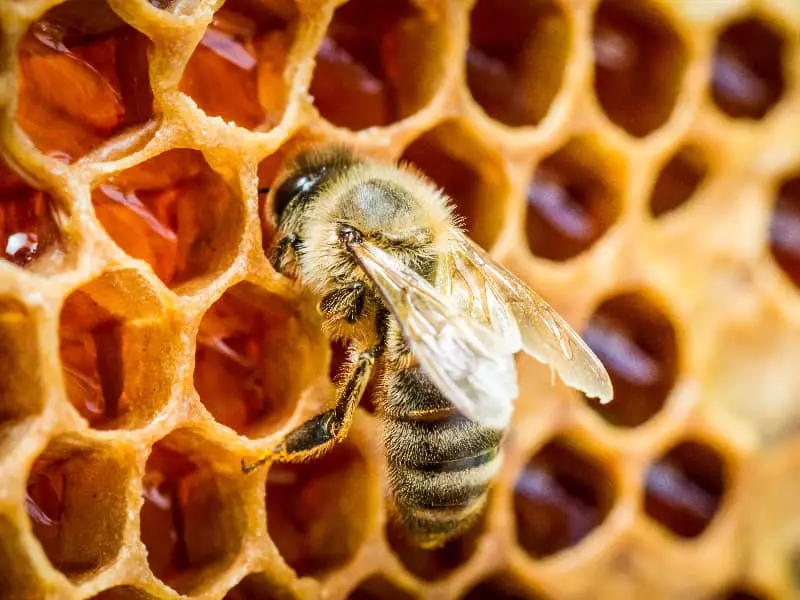
Optimal times for feeding bees
Timing is critical when it comes to feeding bees. It is important to feed the bees when they need it most.
Spring: Start of the season
In the spring, when flowers are not yet in bloom, additional forage can help strengthen the hive and prepare it for the coming season.
Autumn: preparation for winter
In the fall, when flowers are no longer blooming, it is critical to give bees enough food to get them through the winter.
Feeding bees during the winter
During the winter, a hive's needs can vary significantly, and understanding those needs is critical to hive survival.
Use of solid lining
In winter, when temperatures drop, solid forage such as sugar blocks or dough may be a better option, as it does not freeze and can be easily consumed by bees.
Observation of the hive
Observing the hive during the winter is crucial. If you notice that the bees are more active or consume food quickly, this could be a sign that more food is needed.
Bee feed and environmental compatibility
The environmental friendliness of bee feed is an important aspect that is often overlooked. You can make sure that your bee feed is environmentally friendly.
Use of organic sugar
The use of organic sugar in the sugar water ensures that the bees do not ingest harmful chemicals and contributes to sustainability.
Regional pollen sources
When using pollen substitutes, try to use regional sources that have not been treated with chemicals. This supports the local economy and reduces the environmental footprint.
Avoid beginner mistakes when feeding bees
If you're new to bee feeding, there are some common mistakes you should avoid to ensure your bees stay happy and healthy.
Wrong feed concentration
Using the wrong concentration of sugar to water in sugar water can harm the bees. A mixture that is too sweet can cause diarrhea, while one that is too thin does not provide enough nutrients.
Not enough protein
While sugar water is a good source of energy, remember that bees also need protein. Providing pollen or pollen substitutes is critical to the health of the hive.
Advanced feeding techniques
If you already have experience feeding bees, there are some advanced techniques you can use to increase the efficiency and effectiveness of the feeding process.
Automated feeding systems
There are systems that automatically feed the hive based on the bees' needs. These can be expensive, but provide a continuous supply without much effort.
Adapted feed recipes
By adapting the feed to the specific needs of your hive, you can improve health and productivity. This may include the use of special sugar mixtures or the addition of vitamins and minerals.
Bee diseases and feeding
Sometimes a hive may show signs of disease, and proper feeding can be critical to recovery.
Feeding with Varroa mite infestation
If your hive is infested with Varroa mites, using certain feed additives like essential oils can help repel the mites and strengthen the bees.
Nosema support
Nosema is a serious disease that can affect bees. Providing appropriate forage can help bees recover from this disease and prevent it from spreading in the hive.
Feeding bees in the city
Feeding bees in urban areas presents unique challenges, but it is possible and rewarding.
Consideration for neighbors
If you keep bees in an urban area, be aware of the proximity of your neighbors. Proper forage and feeding techniques can help prevent problems such as predation and attracting pests.
Dealing with limited space
Urban beekeepers often have less space. Clever feeding techniques, such as using compact feeders, can help make the best use of space.
Feeding bees, benefits for your garden
Feeding bees not only benefits the bees, but also your garden. Bees play a crucial role in pollination, which is essential for plant production.
Increased pollination
Bees that are well fed are more active and efficient at pollination. This can lead to increased production of fruits and vegetables in your garden.
Diversified flora
With active and healthy bees around, you can expect a greater variety of plants in your garden as bees pollinate different plants.
The ethics of bee feeding
While there are many benefits to feeding bees, there are also ethical considerations that should be taken into account.
Intervention in nature
Some argue that feeding bees is an unnatural interference with nature. It is important to be aware of these considerations and to ensure that your feeding practices are supporting the bees and not harming them.
Responsibility for the bees
When you decide to feed bees, you take on a certain responsibility for their health and well-being. It is important to be aware of this responsibility and make sure you are doing everything you can to support the bees.
Feeding wild bees
It's not just honey bees that can benefit from supplemental feeding. Wild bees may also need support at certain times.
Recognize wild bees
Wild bees often look different from honey bees and have different behaviors. It is important to recognize them and know how best to support them.
Special food sources for wild bees
While sugar water is suitable for honey bees, wild bees often prefer other food sources. Providing flowering plants and special feeding stations can be helpful.
Myths around feeding bees
There are many myths and misconceptions surrounding bee feeding.
Myth: Bees do not need additional feed
While bees can find food in nature, certain times or conditions can lead to food shortages. At such times, feeding can be critical.
Myth: Sugar is harmful to bees
Although pure sugar does not provide all the nutrients bees need, sugar water in the right concentration can be a valuable source of energy.
Cooperation with local beekeepers
Working with local beekeepers can enhance your bee feeding efforts.
Share knowledge and resources
Local beekeepers often have years of experience and can offer valuable advice and resources to help you feed bees.
Community feeding initiatives
By working with local beekeepers, you can participate in community feeding initiatives that can have a greater impact and support more bees.
Conclusion about feeding bees
Bees are indispensable pollinators in our environment and play a crucial role in maintaining biodiversity and producing food. Given the current challenges bees face, such as population decline, disease and food shortages, feeding bees is becoming a key method to improve their survival rate and efficiency as pollinators.
However, it is not just a matter of simple feeding. As we have seen, feeding bees requires a thorough knowledge of what types of food they need, when they need it, and how best to provide it. It is equally important to understand what feeding practices should be avoided so as not to inadvertently harm the bees.
Likewise, bee feeding should be viewed in a larger context that includes ethical considerations, community collaboration, and environmental consideration. Every action we take in relation to bees has an impact on the larger environment and other creatures that inhabit it.
Ultimately, the importance of bee feeding underscores the profound connection between humans and nature. By working for the well-being of bees, we are also working for our own future and the balance of the ecosystem in which we live.
Author

-
Garden animal - A life with nature
Welcome to my animal blog! My name is Dirk and I am happy to take you on my journey through the fascinating world of animals and gardening.
Born 54 years ago, I have had an insatiable curiosity for the animal world around me since childhood. Although I have moved professionally in other industries, my true passion has always been animals and nature. It is remarkable how a small garden has become such an important part of my life.
Many of my fondest memories are associated with the animals that share our home. Whether it's the curious squirrels that scurry across the trees in the morning, the colorful variety of birds that visit our feeders, or the busy bees and butterflies that pollinate our flowers, every moment with them is invaluable to me.
This blog is my contribution to share my experiences, discoveries and insights with like-minded people. Here I will share stories of unforgettable encounters with animals, give tips on gardening and creating wildlife-friendly habitats, and take you on my journeys through nature.
Thank you so much for being here!
Cordial,
Dirk aka garden animal
Last posts
- 27. February 2024PetsVeganes Hundefutter – Grün und Gesund?
- 18. January 2024ChickensOregano für Hühner
- November 27, 2023HamsterDiurnal hamsters
- November 24, 2023HamsterHamster hammock

